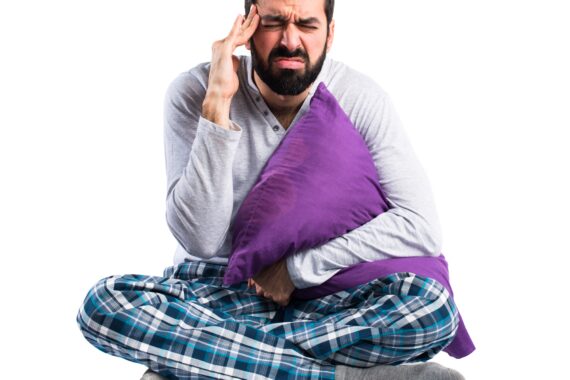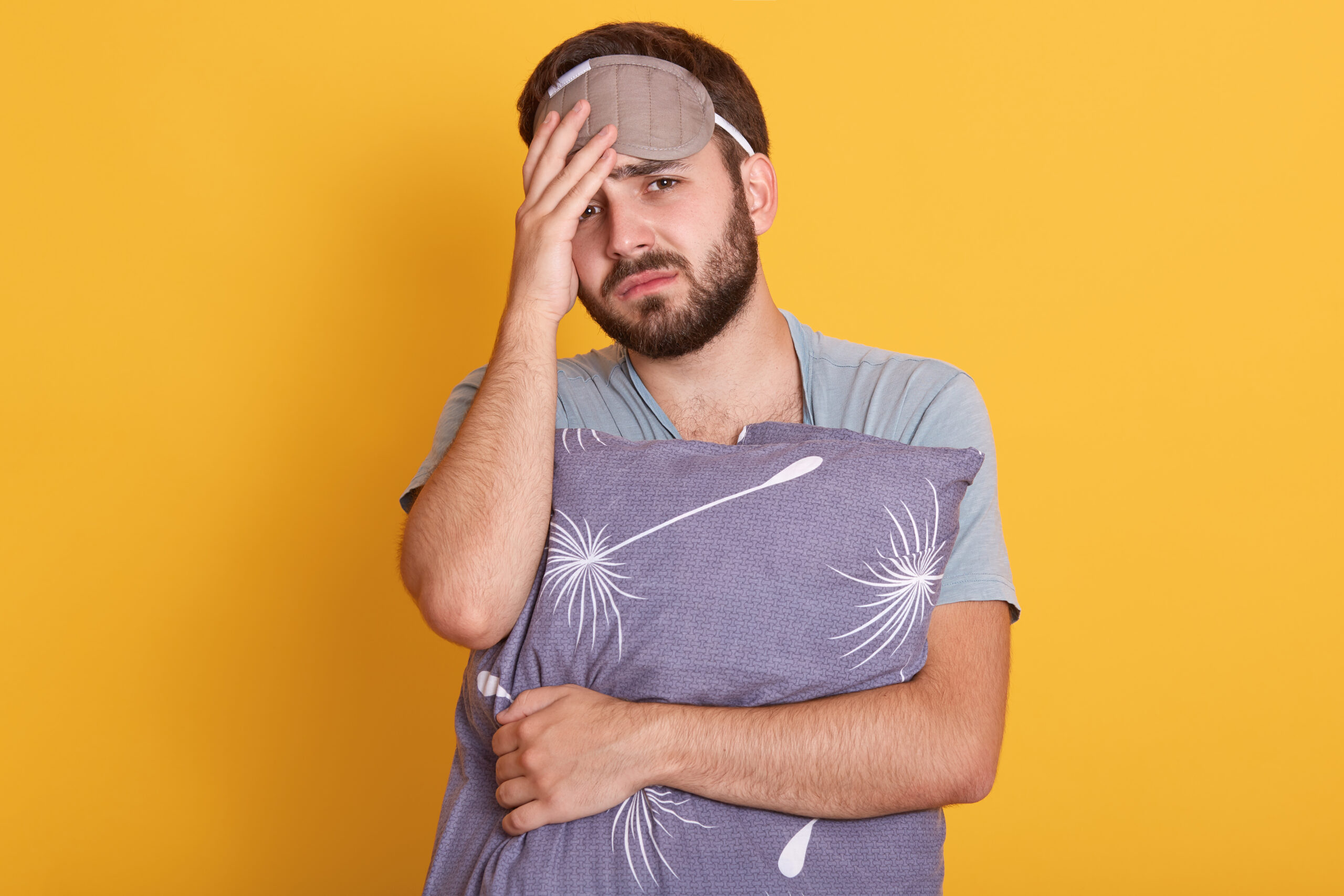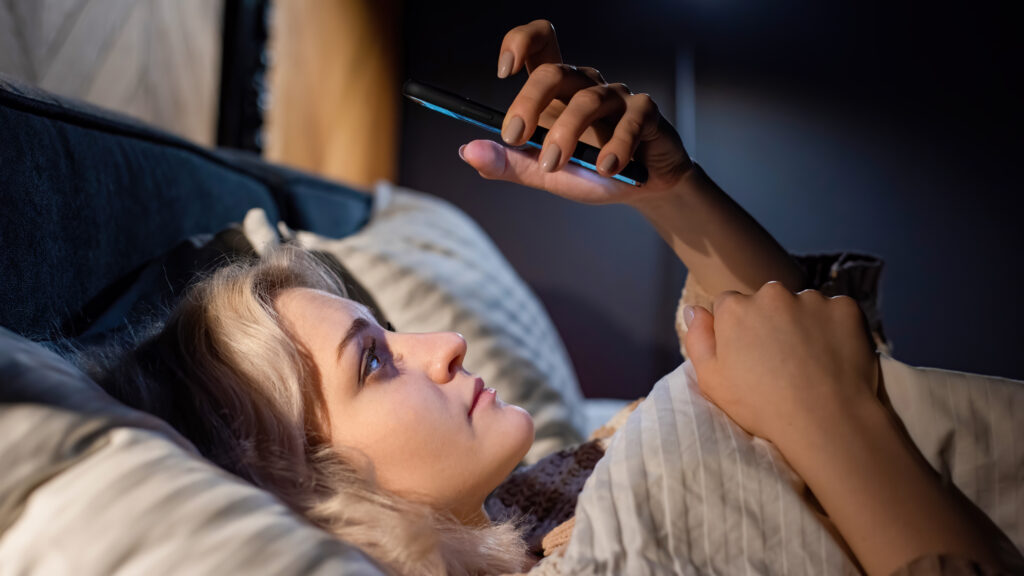Do you stay up late, scrolling on your phone, watching TV, or just lying in bed thinking? Staying up late can feel fun, but it can also make you feel tired, sad, and stressed the next day. Not getting enough sleep can lead to problems with focus, energy, and even weight. Here’s why it can be harmful along with some simple steps to help you go to bed earlier.
1. Why Staying Up Late is a Problem?
When you don’t sleep enough, it can cause a lot of problems. Here’s what can happen if you stay up too late all the time:
- More Stress and Anxiety: Sleep helps you handle stress. When you don’t get enough, you might feel more nervous or worried.
- Mood and Sadness: Not sleeping well can make you feel sad or cranky. Over time, it can lead to serious mood problems like depression.
- Hunger and Weight Gain: It can make you feel hungry, and you might snack on unhealthy foods. This can cause weight gain.
- Harder to Focus: Sleep helps your brain focus and remember things. Without it, you may struggle at school or in activities.
- Health Issues: Over time, poor sleep can even cause problems with your heart and weaken your immune system, making it easier to get sick.
2. Why Do We Stay Up So Late?
Sometimes, people stay up late on purpose, thinking they’ll just have one more hour to watch videos or play games. This is called bedtime procrastination which means putting off going to bed even when you’re tired.
2.1 How to Beat Bedtime Procrastination?
- Set a Sleep Alarm: Try setting an alarm that reminds you it’s time to get ready for bed.
- Create Earlier Relaxation Time: Make some time to relax earlier in the evening so you don’t feel like you’re missing out.
- Think About Tomorrow: Remind yourself how much better you’ll feel with good sleep.
2.1.1 Create a “Down Hour” Before Bed
A down hour is a relaxing time to wind down before bed. Doing calm activities an hour before bedtime helps your mind and body get ready for sleep.
How to Have a Down Hour:
- Turn Off Screens: Screens give off blue light that can make it hard to sleep. Try to put down your phone or tablet an hour before bed.
- Do Calm Activities: Read a book, listen to music, or do some stretches. This helps your mind relax.
- Make Your Room Cozy: Keep your bedroom cool and dim the lights. Add a soft blanket or some calming scents like lavender.
Having a down hour every night can help your body get used to going to sleep at the same time.
3. Steps to Go to Bed Earlier
Here are some simple steps to help you shift your sleep schedule and go to bed earlier:
3.1 Have a fixed time for sleep and wake up everyday
Try to keep the same sleep and wake times, even on weekends. This helps your body get into a steady rhythm, making it easier to sleep.
3.2 Cut Down on Caffeine and Sugar
After Lunch Caffeine in drinks like soda or coffee can make it hard to sleep, even hours after you have it. Try not to have any caffeine after lunch.
3.3 Limit Screen Time Before Bed
Screens (like phones, tablets, or computers) can make your brain think it’s still daytime. Try using your devices less about an hour before bed.
How to Use Screens Less at Night: Use “night mode” on your phone to reduce blue light. Keep your phone in another room or use a regular alarm clock instead of your phone. Try reading a book or doing a craft activity.
3.4 Create a Bedtime Routine
A bedtime routine helps you get ready for sleep by doing calming activities each night. Here are a few ideas:
- Take a warm shower or bath.
- Practice deep breathing exercises or do some light stretches.
- Write in a journal about your day.
Doing the same things every night tells your body it’s time to wind down.
3.5 Make Your Room Comfortable for Sleep
A cool, quiet, and dark room can help you fall asleep faster. Here’s how to make your bedroom better for sleep:
- Temperature: Keep your room cool.
- Lighting: Use dark curtains to block any light from outside.
- Bedding: Make sure your mattress and pillows are comfy.
4. Common Sleep Problems
Some people can’t sleep because of sleep disorders like insomnia (trouble falling or staying asleep) or sleep apnea (breathing stops during sleep). If you have a lot of trouble sleeping, you might need extra help.
Common Sleep Problems:
Insomnia: Trouble falling asleep or waking up a lot during the night.
Sleep Apnea: Breathing problems during sleep, often with snoring. If you can’t sleep even after trying these tips, talk to a parent or doctor for help.
5. Ways to Relax Before Bed
Sometimes, it’s hard to sleep because of stress. These relaxation tips can help calm your mind and body:
- Deep Breathing: Breathe in slowly and breathe out. Focus on each breath.
- Muscle Relaxation: Start from your toes and tense each muscle group, then relax.
- Visualization: Imagine a peaceful place like a beach or forest to help you relax.
- Adding a relaxing activity to your routine can make it easier to fall asleep.
5.1 Avoid Big Meals and Sugary Drinks Before Bed
Eating a big meal or having sugary drinks before bed can make it hard to fall asleep. Try to finish dinner a few hours before bedtime.
5.1.1 Tips for Late Night Eating:
- Avoid heavy or spicy foods.
- Don’t drink soda or sugary drinks close to bedtime.
- Try herbal tea or warm milk if you’re thirsty.
Eating lighter and avoiding sugar at night can improve your sleep.
6. Morning Tips for Better Sleep at Night
A good morning routine can help keep you on track for a better night’s sleep.
6.1 Ideas for a Morning Routine:
- Get Sunlight: Natural light in the morning helps set your internal clock.
- Exercise: Physical activity can make it easier to fall asleep at night.
- Have a Healthy Breakfast: Eating a nutritious breakfast can help keep your energy stable all day.
A healthy morning routine makes it easier to feel awake during the day and sleep well at night.
Final Thoughts
Changing your sleep habits to stop staying up so late isn’t easy, but it’s worth it. Try to go to bed and wake up at the same time, create a down hour, and make your room cozy for sleeping. With these simple steps, you’ll feel more energetic, focused, and happy each day.
FAQs
Q1: Why is staying up late bad for me?
A: It can make you feel tired, stressed, and less focused. It can also lead to health problems like weight gain, mood changes, and lower immune strength.
Q2: What is bedtime procrastination?
A: Bedtime procrastination is when you put off going to bed, even if you’re tired, to have more time for activities like watching TV or using your phone.
Q3: How much sleep do I need each night?
A: Most teens need 8-10 hours of sleep, while adults usually need about 7-9 hours. Getting enough sleep helps with focus, energy, and overall health.
Q4: What’s a “down hour”?
A: A down hour is a time you set aside to relax before bed. This hour helps your body and mind prepare for sleep by doing calming activities like reading, stretching, or listening to music.
Q5: How can I stop using screens before bed?
A: Try setting an alarm to remind you to put away your phone or use “night mode” on your devices to reduce blue light. You can also leave your phone outside your room at night.
Q6: What are some common sleep disorders?
A: Common sleep disorders include insomnia, where you have trouble falling or staying asleep, and sleep apnea, where breathing stops briefly during sleep.


